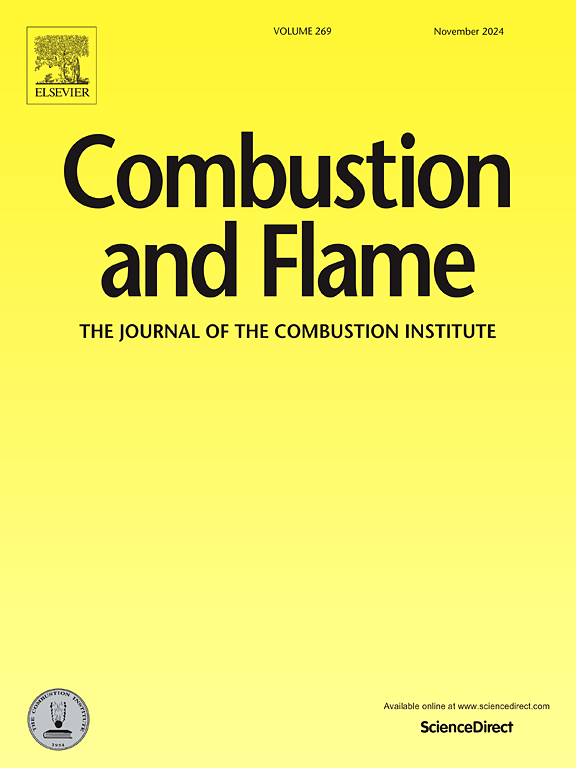Ignition characteristics of methanol-rich renewable gasoline
IF 6.2
2区 工程技术
Q2 ENERGY & FUELS
引用次数: 0
Abstract
In the pursuit of renewable fuels, few options are as promising as methanol. Methanol’s unique properties, such as the absence of C–C bonds, high oxygen content, and elevated octane numbers, offer a compelling avenue as an additive for conventional and renewable gasoline fuels. Notably, methanol and e-gasoline (e.g., methanol-to-gasoline, MTG) can be sustainably derived from renewable sources, reinforcing their role in cleaner energy systems. Within the MTG framework, methanol acts as a primary feedstock, subsequently transformed into high-quality e-gasoline, demonstrating its dual functionality as both a precursor and an effective octane booster. This dual functionality positions methanol as a crucial facilitator in the transition towards more sustainable and efficient fuel alternatives. In this work, we studied the impact of methanol additions (20–40 %, by vol.) on the octane and autoignition characteristics of an MTG having Research Octane Number (RON) of 82.1. The octane ratings of methanol-rich MTG were measured using a Cooperative Fuel Research (CFR) engine, while autoignition studies were conducted using a high-pressure shock tube (HPST) and a rapid compression machine (RCM). Autoignition experiments covered a broad spectrum of temperatures (680–1370 K), pressures (10, 20, 30, and 40 bar), and varied fuel composition (φ = 0.5, 1). Results indicate that ignition delay times of MTG are significantly perturbated with methanol additions. At intermediate and low temperature (≈ < 920 K), methanol-rich MTGs exhibit a strong reactivity-inhibiting effect, with ignition delays prolonged as methanol content rises. This trend agrees well with the RON values of MTG and MTG blended with methanol. Conversely, at higher temperatures (> 920 K), methanol blending promotes reactivity, shortening the ignition delays. This reactivity-promoting effect increases with increasing methanol content. A recently developed gasoline kinetic model by the authors was employed to evaluate the influence of methanol blending on MTG reactivity. Ignition delay predictions were validated using both quaternary and multicomponent (MC) methanol-containing surrogates, with the MC surrogate providing the most accurate predictions. Lastly, temperature-based sensitivity analyses were performed to identify key reactions responsible for the reactivity- promoting and inhibiting effects of methanol blending on MTG combustion characteristics.
富甲醇再生汽油的点火特性
在追求可再生燃料的过程中,很少有选择像甲醇一样有前途。甲醇的独特特性,如没有碳-碳键、氧含量高、辛烷值高,为传统和可再生汽油燃料的添加剂提供了令人信服的途径。值得注意的是,甲醇和电子汽油(例如,甲醇制汽油,MTG)可以可持续地从可再生能源中获得,从而加强了它们在清洁能源系统中的作用。在MTG框架内,甲醇作为主要原料,随后转化为高质量的电子汽油,展示了其作为前驱体和有效辛烷值助推器的双重功能。这种双重功能使甲醇成为向更可持续和更高效的燃料替代品过渡的关键促进者。在这项工作中,我们研究了甲醇添加量(20 - 40%,按体积计算)对研究辛烷值(RON)为82.1的MTG的辛烷值和自燃特性的影响。使用合作燃料研究(CFR)发动机测量了富甲醇MTG的辛烷值,同时使用高压激波管(HPST)和快速压缩机(RCM)进行了自燃研究。自燃实验涵盖了广泛的温度(680-1370 K),压力(10,20,30和40 bar)和不同的燃料成分(φ = 0.5, 1)。结果表明,甲醇的加入对MTG的点火延迟时间有显著的影响。在中低温(≈< 920 K)下,富甲醇MTGs表现出较强的抑制反应作用,随着甲醇含量的增加,着火延迟时间延长。这一趋势与MTG和与甲醇混合的MTG的RON值一致。相反,在较高的温度下(920k),甲醇混合促进反应性,缩短点火延迟。随着甲醇含量的增加,这种促进反应的作用增强。采用作者新建立的汽油动力学模型,评价了甲醇掺合对MTG反应性的影响。使用含四元和多组分(MC)甲醇替代物对点火延迟预测进行了验证,其中MC替代物提供了最准确的预测。最后,进行了基于温度的敏感性分析,以确定甲醇混合对MTG燃烧特性的促进和抑制反应性的关键反应。
本文章由计算机程序翻译,如有差异,请以英文原文为准。
求助全文
约1分钟内获得全文
求助全文
来源期刊

Combustion and Flame
工程技术-工程:化工
CiteScore
9.50
自引率
20.50%
发文量
631
审稿时长
3.8 months
期刊介绍:
The mission of the journal is to publish high quality work from experimental, theoretical, and computational investigations on the fundamentals of combustion phenomena and closely allied matters. While submissions in all pertinent areas are welcomed, past and recent focus of the journal has been on:
Development and validation of reaction kinetics, reduction of reaction mechanisms and modeling of combustion systems, including:
Conventional, alternative and surrogate fuels;
Pollutants;
Particulate and aerosol formation and abatement;
Heterogeneous processes.
Experimental, theoretical, and computational studies of laminar and turbulent combustion phenomena, including:
Premixed and non-premixed flames;
Ignition and extinction phenomena;
Flame propagation;
Flame structure;
Instabilities and swirl;
Flame spread;
Multi-phase reactants.
Advances in diagnostic and computational methods in combustion, including:
Measurement and simulation of scalar and vector properties;
Novel techniques;
State-of-the art applications.
Fundamental investigations of combustion technologies and systems, including:
Internal combustion engines;
Gas turbines;
Small- and large-scale stationary combustion and power generation;
Catalytic combustion;
Combustion synthesis;
Combustion under extreme conditions;
New concepts.
 求助内容:
求助内容: 应助结果提醒方式:
应助结果提醒方式:


